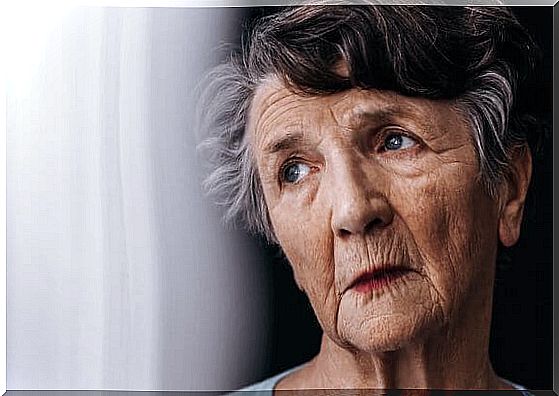My Grandmother Who Suffered From Alzheimer’s Laughed A Lot

My grandmother who suffered from Alzheimer’s laughed a lot. At 90, she began to show mental deficiencies. Little unimportant oversights. At 92, she began to forget the last things she had done, but on the other hand she remembered being immersed in a task that she had more or less enjoyed.
She died at the age of 96. And during these 4 years, her Alzheimer’s did not progress much further, but still enough to lead her to ask the same question 4 or 5 times.
She was a great cook when she could still fend for herself. At the end of her life, she used a walker to be able to walk. Several knee and hip operations restricted his mobility, which did not prevent him from moving.
His energy amazed us all. She aroused admiration among those who knew her. My grandmother, with or without Alzheimer’s, has been a fighter throughout her life.
My grandmother loved vermouth
When the disease started to manifest itself, I already had the license and my own car. My grandmother lived alone, but Alzheimer’s did not prevent her from living with a certain normality. A young girl kept her company at home and she was quite self-sufficient.
However, she liked to come and eat at the house, with my parents and me. So, at 12:30 p.m., I always went to pick her up. And, as usual, we spent at least an hour in the car together.
She liked to look at the landscape through the window, especially the Mediterranean landscape. We were still driving on part of the island of Mallorca. We even went to her favorite restaurant for their vermouth. And after all this tour of the island, we were going back to my parents to eat.
“ Where did you go?” Asked his son, my father. “I don’t know, but I liked it a lot,” replied my grandmother, smiling and happy. “Tell us a little, what did we see?” I asked him. “We saw countryside landscapes… But I don’t remember anymore, I think we went far,” she replied.

My grandmother with Alzheimer’s laughed at everything
Conversations with her were very fluid, we could talk about everything, but her short-term memory was failing her. Despite this, when we repeated the same action several times, little by little she remembered it.
Psychology was one of his pending subjects; she never remembered what it was for. I realized that her blackouts, added to the complexity of some subjects, made it difficult for her to remember information. But it didn’t matter to her; she laughed and took it all with humor.
No matter how much I think about it and search my memory, I don’t remember a moment when her memory malfunction pissed her off. On the contrary, it amused her a lot and she said to me while looking at me: “Did you see how we become? We don’t remember anything anymore, ”and she laughed. She was taking it well and so was I.
I remember a scientific article by Niu and Alvarez-Alvarez (2016) which showed that among the European population over 65, at least 4.4% suffered from Alzheimer’s. How should a person feel who little by little can no longer remember anything? What should a life be like without recent memories?

When grandchildren take care of their grandparents
Taking care of my grandmother who suffered from Alzheimer’s taught me a very important lesson: Even though she couldn’t remember everything she had done, she still remembered to have taken advantage of the moment. And that joy followed her for a good part of the day.
I have come to realize that many people think that because our ancestors have Alzheimer’s, they no longer feel pleasure when they engage in an activity. And it is wrong.
The important thing is not whether they remember or not, but it is that they are happy in the present moment. My grandmother, in a way, was living in the present, something that many of us try to do on a daily basis, but to no avail.
She remembered her very distant past, but she could not remember what she had done the day before and knew that she would not keep any memory of what she was doing. Thus, she could then only take full advantage of the present moment without thinking about the past or the future.
This lesson was useful to me years later when I established my psychology practices in a retirement home. In fact, my favorite elderly people were those with Alzheimer’s who worried little or nothing.
I knew she wouldn’t remember anything, but they were enjoying the moment. It was then that I told myself that all these old people were my “grandfathers” and my “grandmothers”. I promised myself that they would be able to enjoy their lives in the present.










